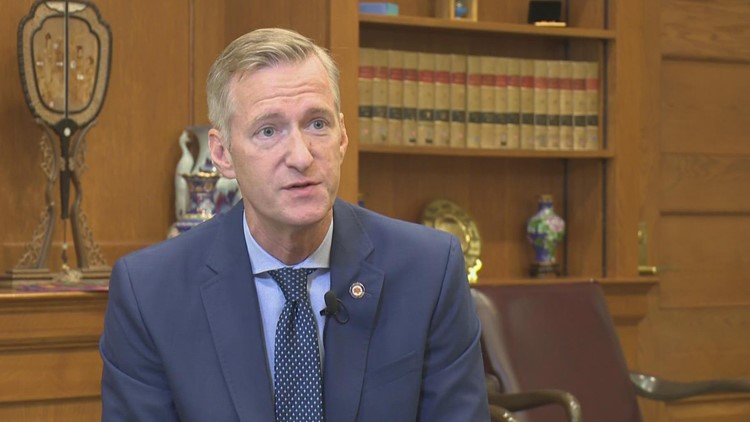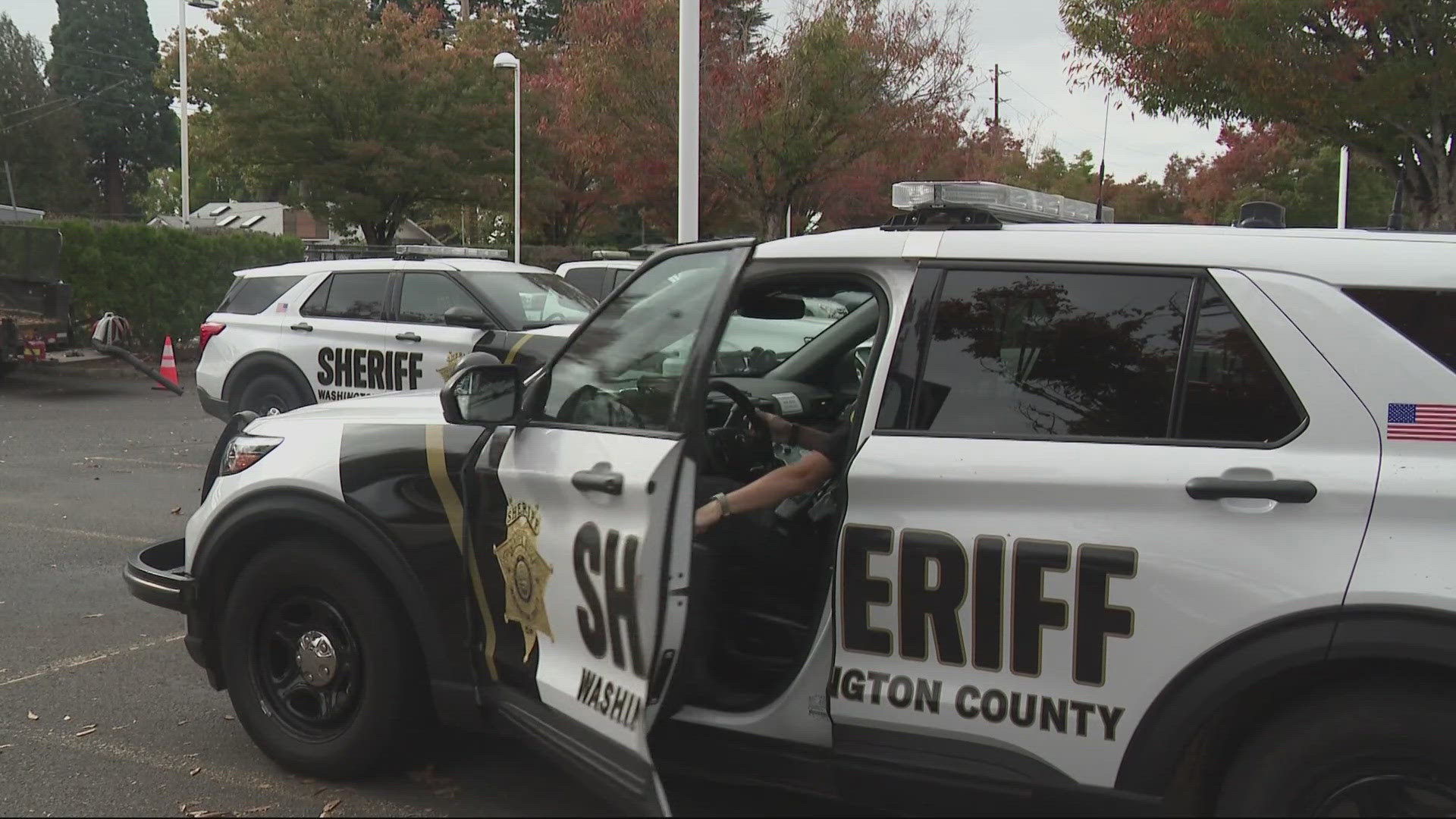PORTLAND, Ore. — Portland Mayor Ted Wheeler held a news conference Wednesday afternoon to discuss his proposed city budget for the 2022-23 fiscal year, which begins July 1.
The mayor’s office said it will release the full proposed budget document at the start of a Thursday morning budget work session, but a draft version details a $6.7 billion budget that aims for three core priorities that the city has emphasized during the past year: homelessness, community safety and economic recovery.
During the news conference, Wheeler sought to portray the budget as an aggressive and proactive response to the city's multiple crises.
"This budget is responsive to both the frustration that Portlanders are justifiably expressing and their demand that we take action," he said.
The proposal includes a $621.6 million general fund discretionary budget, which is the part of the overall budget with fewer restrictions on how it can be spent. The budget also incorporates $104 million in additional American Rescue Plan Act dollars and $1.9 million in recreational cannabis tax revenue.
It also includes $34.8 million in one-time business license tax revenue from the city's April forecast, but because the forecast is so recent, some of the allocations for that revenue will need to be adopted through an amendment after the budget is approved, which Wheeler said he plans to introduce on May 11.
Homelessness, public safety and economic recovery
In the homelessness category, the two big budget items are $36.2 million to fund two years of operations for the six planned Safe Rest Villages plus two “C3PO” (Creating Conscious Communities with People Outside) villages, and $32.8 million for the Joint Office of Homelessness Services base budget.
The budget also has some set-asides for specific Joint Office programs, including $8.26 million for motel shelters and $7.5 million to continue priority services that were previously funded by an allocation in last year’s fall budget adjustment.
On the housing side, the budget proposes $5.8 million for land banking for affordable housing, $5.2 million to preserve currently affordable units that are set to expire and $3.5 million for the Broadway Corridor project to use on demolition work to prepare sites for affordable housing.
In community safety, the budget includes $2.9 million to expand 311 operations to 24-hours-a-day and $13 million for gun violence prevention, the bulk of which would go to the Office of Violence Prevention.
It also allocates $11.5 million for Portland Street Response to scale up to 24-hours-a-day operations, $3.9 million for body-worn police cameras, $3.9 million to bring on eight more more unarmed Public Safety Support Specialists (PS3s) and $1.6 million for PPB efforts to deter car theft.
On economic recovery, the budget doles out a total of about $23 million to more than a dozen business groups or specific industries as well as some broader economic development initiatives, including $1.5 million to establish a Citywide Events Office and $1.3 million to streamline Portland’s development permitting system.
The budget also assigns about $21 million to a range of products under a “livability” umbrella such as $2.2 million for graffiti cleanup, $9.2 million to repair the Mt. Scott Community Center and continue redevelopment of O’Bryant Square and $4.7 million to repave Southeast Division Street.
Discussion of homelessness solutions and police staffing
Wheeler defended his approach to tackling the homelessness crisis during the press conference, arguing that the city's existing strategies are the correct ones, but they need to be significantly scaled up to match the scope of the problem.
He pointed to his use of emergency authority earlier this year to create a centralized homeless services office that cuts across city bureaus as an example of how the city's response to the crisis is improving.
He also defended his push for temporary shelters as a way to get people out of dangerous conditions and connect them with services, arguing that more time spent on the street increases the likelihood that people will be exposed to drug abuse and violence and develop mental health issues.
"I realize temporary shelter is not the solution to homelessness, but it's a darn good start," he said.
He also addressed the difficulty the city faces in trying to fill out its police officer ranks. Sworn officers are in high demand in cities across the country, which makes hiring very difficult, Wheeler said, although he also acknowledged that "it's definitely a tougher sell" for Portland in particular to attract officers.
The budget's focus on hiring and expanding the roster of PS3s is an attempt to prioritize resources, he said, bringing on more staff who can respond to simple calls like car break-in reports and freeing up the city's limited number of sworn officers for more urgent tasks.
Watch the full news conference:



